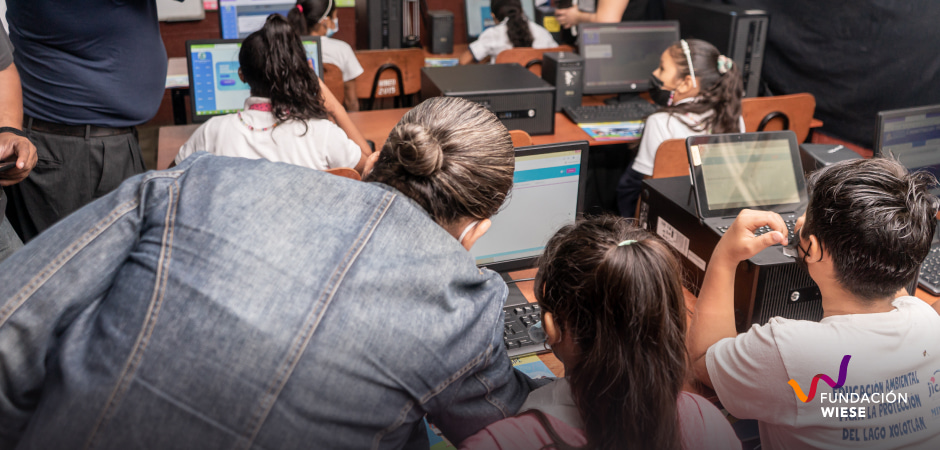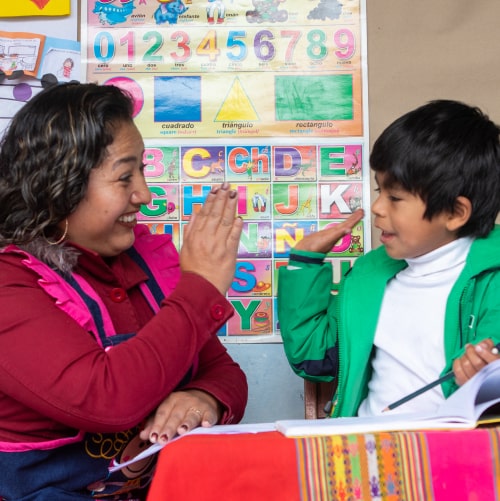In today’s society, the importance of values in civic education is undeniable. Values manifest the awareness that we, as human beings, have formed about what is good and bad; therefore. They are, therefore, fundamental for the development of committed and ethical individuals who contribute to the common welfare.
What are universal values and what is their impact on society?
According to the Organization of Ibero-American States, values are “considered referents, qualities or characteristics that guide human behavior and the life of each person and social group, directed towards personal fulfillment and social transformation.” In addition, this organization underscores the fact that values are constantly changing and are influenced by different social actors.
Living according to values implies an effort and commitment on the part of each one of us, as people seeking to do the right thing. This effort is an ongoing challenge, as we often encounter anti-values. These anti-values do not just manifest in others, sometimes we need to discover them in ourselves in order to overcome them.
To put these values into practice, it is necessary that, as individuals, we have an education that inculcates these principles in us, both in the family environment and in schools and the community. Moreover, we must develop our sensitivity, which will allow us to be alert to detect those human instincts that lead us to develop an anti-value and thus avoid them.
Why is education important in the formation of a society with values?

Living a life with values goes beyond studying them or reading about them. It implies the commitment and will of each person. Values have the ability to inspire us when making any ethical decision. Citizen ethics educates us to develop values that are essential for life in society, given that it is these that facilitate our relationship with other people and increase the level of common well-being.
Citizen ethics gives us the idea that citizenship is exercised by an ideal type of “good citizen” and with the civic competencies that he/she must have. Education in values is inculcated with the aim that children grow up in an integral way and live in harmony together with the rest.
Let us foster values in the new generations

In the civic education of the new generations it is essential to promote values that allow them to be exemplary citizens. Here are ten values that we must promote in children for them to apply in their daily lives and in society:
- Respect: Learning to respect others, their ideas and their rights is essential for harmonious coexistence.
- Tolerance: Fostering tolerance towards cultural, religious and opinion differences contributes to a more inclusive society.
- Honesty: Honesty is the foundation of trust and integrity.
- Responsibility: Teaching children to take responsibility from an early age helps them become committed citizens.
- Kindness: Small gestures of kindness can make a difference in the lives of others.
- Gratitude: Teaching children to be grateful promotes a positive attitude toward life.
- Humility: Humility allows them to recognize that everyone has a lot to learn from the rest.
- Solidarity: Solidarity strengthens community by fostering mutual aid.
- Autonomy: Promoting autonomy gives children the confidence to make responsible decisions.
- Confidence: Inculcating self-confidence allows them to face challenges with determination.
Let us promote Universal Values
Universal values guide us in the search for a better world, and their application in everyday life is essential for the common good. Citizen ethics gives us the tools to be committed citizens, and education in values from an early age is fundamental to build a more fair and ethical society.
At the Wiese Foundation, we are committed to promoting education in values and citizen education. We believe that these values are fundamental to the development of conscientious and ethical citizens. If you want to know more about our Educational Quality program and how we work in the education of committed citizens, we invite you to visit our website. Together, we can build a society based on sound principles that promote the common good. Join us in this important mission!
You may also be interested in:









